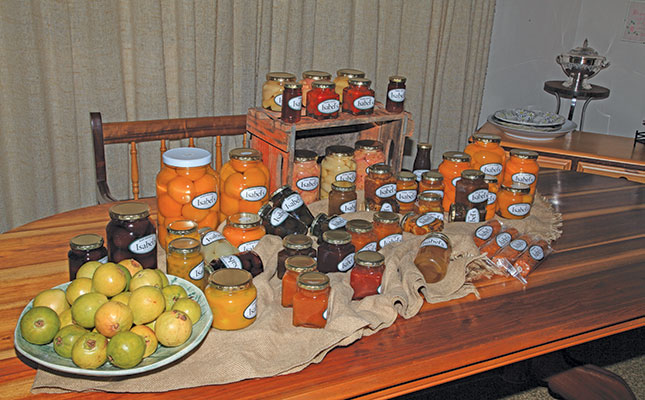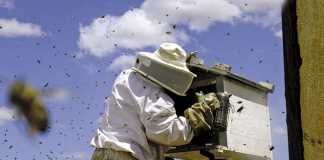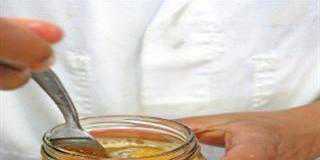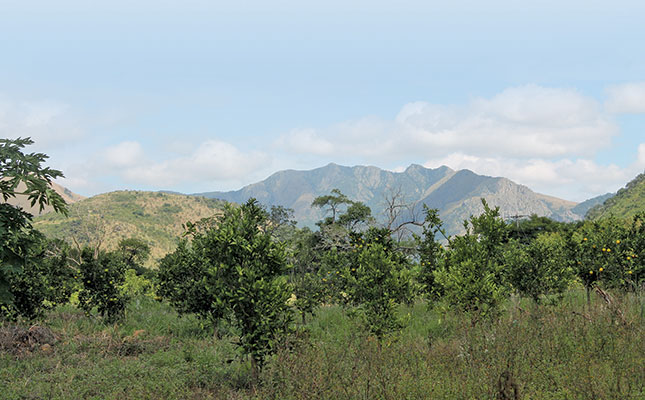
In tabling the 2023/2024 budget for the Limpopo Department of Agriculture and Rural Development (LDARD), one is acutely aware of the challenges currently confronting our farmers across South Africa.
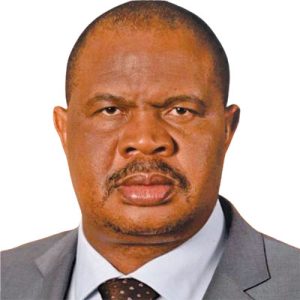
But despite these challenges, our agriculture sector continues to play a crucial role in ensuring national food security.
The 2022 Global Food Security Index ranks South Africa as the most food-secure country in Africa, and 59th globally, out of 133 countries.
Tunisia, at number 62 globally, is the only other African country in the top 100 food-secure nations in the world.
We believe that this is made possible by the hard work of our farmers and farmworkers, the agriculture sector at various levels and, of course, the supportive role of government through various enabling policies and programmes.
However, we should also take note of the 11% of the population or 6,5 million people who still go to bed hungry, and intensify our intervention programmes towards ensuring household food security, and thus espouse the United Nations’ Sustainable Development Goal 2, which envisions an end to hunger and access by all, in particular the poor and other vulnerable populations, to safe, nutritious and sufficient food all year round by 2030.
Power cuts
We need not downplay, however, the impact of the current power cuts on the production of our staples, which has been evident in the latest food price hikes.
The programmes of the department should always aim to contribute to cushioning producers from this blow, and, in turn, enable access to affordable, safe and nutritious food by all citizens, particularly the most vulnerable.
Thus we take relief from the commitment by premier Stanley Mathabatha that there will be a “development of a province-specific and comprehensive energy plan to ensure that we build new electricity generation capacity in our province”.
Furthermore, Minister of Agriculture, Land Reform and Rural Development Thoko Didiza has established an energy task team. This will help our department to include the development of energy production projects in our plans.
I have met with the representatives of organised farmers in this regard and directed our department to establish an energy task team to work on the agriculture sector’s input into the broader plan to mitigate the impact of load-shedding on food production across the value chain.
Wake-up call
Today, the high cost of food should serve as a wake-up call to all of us that it is time to go back to the basics of own food production through, among others, backyard gardens, household poultry/egg production, small stock, and more. We have thus adopted, as a department, a slogan of “evangelising agriculture and food production to be a culture by all, no longer just a leisure for some”.
We call upon everybody to take advantage of the resources at disposal to contribute to improved food security, employment creation and reduction of poverty.
To this end, the LDARD has received an allocation of R1,77 billion in 2023/24. This is made up of equitable share allocation worth R1,43 billion and conditional grants amounting to R340 million.
As part of agriculture evangelism, together with the Department of Education, we are working on mechanisms to support agricultural schools in our province. The aim is to enable these schools to continue to serve as a foundation for agricultural career development, and to promote the importance and value of increased participation by young people in the food chain system.
We are forging ahead and are making significant strides in strengthening our relationship with various role players and stakeholders in the agriculture sector in working together as government and private sector towards a realisation of this goal.
Our reflection on the Red Meat Cluster development has indicated that we need to change our approach.
We are working on developing a comprehensive masterplan, which will guide and direct the necessary investment through public and private partnerships.
Our department is committed to “promote food security and economic growth through sustainable agricultural development”.
The 2023/24 budget allocation will thus enable us to continue the journey of our mission, amplified by agriculture evangelism, to put into effect policy priorities as outlined in the 2020/21–2024/25 Medium Term Strategic Framework and the Limpopo Development Plan.
This journey is undertaken within the context of limited resources and a slim workforce, which we have mitigated through organisational redesign.
Furthermore, in my interview with Farmer’s Weekly I highlighted the importance of innovation such as that underscored by Theo du Plooy, an engineer and farmer in Limpopo, who has designed a unique mass handler facility for managing the health of goats and sheep without hurting or injuring them. Innovation, I told the magazine, “can move the human development trajectory to another level, even in agriculture.”
The LDARD is also keeping a close eye on how the effects of climate change are shaping critical narratives about the future of all agricultural industries.
We commit to initiating and participating in research that promotes the role of sustainable production strategies in the reduction of greenhouse gas emissions.
Land rehabilitation
Our Sustainable Resource Use and Management Programme has been allocated R1,4 million for the 2023/24 financial year. This programme remains the cornerstone of agricultural practices, since it is about caring for the very soil that agriculture depends on and the provision of infrastructure to support farming activities.
In 2022/23, as we promised, we rehabilitated 1 300ha of land and cultivated 502ha under conservation agriculture practices.
The department managed to create 2 754 Expanded Public Works Programme (EPWP) job opportunities.
The allocation for 2023/24 includes a Landcare Conditional Grant (R13 million) and an EPWP Incentive Grant (R9 million).
Furthermore, the current budget will be channelled to the following plans:
- The establishment of 46 agricultural infrastructure projects, and equipping of 176ha with infield irrigation systems;
- The creation of 2 700 green jobs through EPWP;
- Promoting the adoption of climate-smart agriculture technologies by developing 26 efficient water-use systems and the construction of 24 environmentally controlled production systems;
- Promoting conservation of natural resources by rehabilitating 1 400ha, supporting cultivation of 600ha under conservation agriculture practices, and clearing 1 500ha of alien invasive plants.
We will explore the expansion of support to process the identified invader tree species to other areas, to assist farmers to generate income from the harvested invader species.
A feasibility analysis will be conducted in the first quarter of this financial year to determine the possibility of replicating these kinds of projects across the province. Recently, I witnessed a similar landcare pilot project at Mamaila Kolobetona village in Mopani District, wherein a group of cattle farmers received support from the LDARD to manage invasive plant species.
We are determined to continue our transformation agenda by providing support to the transformation and development of the agriculture sector through our Agricultural Producer Support and Development Programme, and actively contribute to economic growth, inclusion, equality, and the creation of decent work.
During the past year, the LDARD increased participation of producers in the integrated value chain through support of 7 302 producers across various agriculture commodity groups, 1 573 above the target.
Furthermore, we fulfilled our 2022/2023 commitment to capacitate farmers by training 1 359 producers and reached out to 1 504 farmers through demonstrations and farmer days, an overwhelming achievement.
Our intentions to support smallholder producers and subsistence farmers were negatively impacted mainly by the volatile price escalation in inputs, especially fertilisers, due to the Russia-Ukraine war and other global and national market factors.
However, we remain committed to our mission as we present the 2023/24 plans and derive strength from our agricultural spirit of evangelism.
Among the key deliverables of this programme is revitalisation of small-scale irrigation schemes. As we announced in the 2022/23 budget speech, notable progress has been made with four schemes and the support is mainly through infrastructure development.
The development of the Mogalatšane irrigation scheme infrastructure is at 80% completion. It is worth noting that the scheme is currently producing cotton under a dryland production system.
The revitalisation of the Hereford irrigation scheme for the Tafelkop Farmers’ Association includes a bulk water supply and in-field irrigation system development, establishment of shade-net covering 1ha on each plot, refurbishment of the packing facility, and the construction of ablution facilities and storage facility to ensure compliance with SA-GAP market requirements. This development is planned for completion in the 2023/24 financial year.
Production at other schemes, namely Zamerkomste, Dichweung and elsewhere, is also progressing fairly well.
Seasonally, an average of 400t of cotton are produced, with more than 300 jobs created.
Support will continue in 2023/24 to, enable among others, the planting of 464ha as part of the expansion of the Sekhukhune cotton cluster development.
The objectives here are, by 2025, to increase the number of producers from 124 to 400, double production from 400ha to 1 000ha, increase the knowledge and skills base of cotton producers, and improve market access. This development is in partnership with Cotton South Africa.
For 2023/24, the Agricultural Producer Support and Development Programme has received R8 million, which constitutes 44,7% of the total departmental budget.
Agriculture is science-led, so for producers to remain relevant and to be able to keep up with consumer demand and expectations, continual training and capacity-building will remain at the centre of everything we do as a provincial government.
Thabo Mokone is the MEC of Agriculture and Rural Development in Limpopo. This is an edited excerpt from his budget speech and interview with Farmer’s Weekly.












